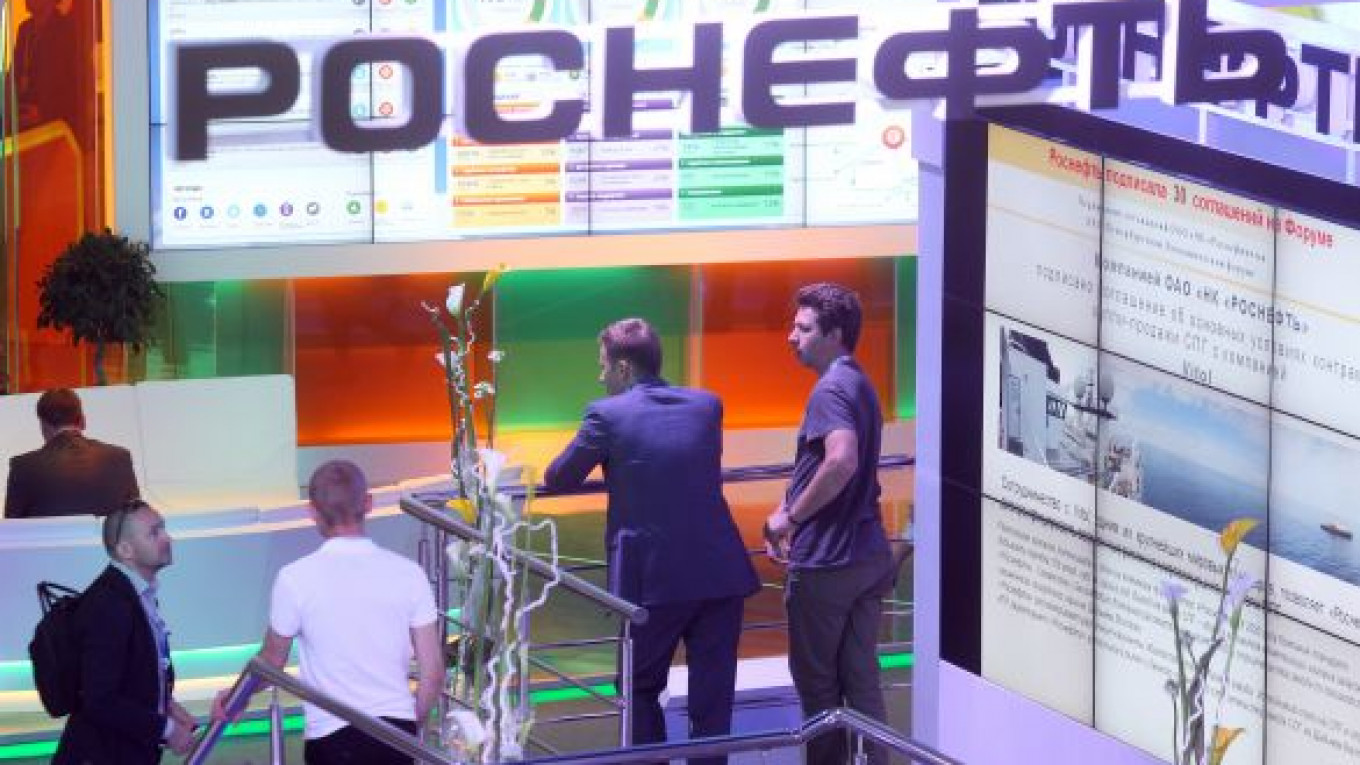Rosneft is to buy the remaining shares in TNK-BP Holding for a fraction of the price that it paid BP and a group of oligarchs for their stakes, in a worrying development for minority shareholders in Russian companies.
Rosneft bought the holding company and its parent TNK-BP last year in a $55 billion takeover that created the world's largest publicly traded oil company by output. Minority shareholders own about 5 percent of the unit, now renamed RN Holding.
The deal to buy them out for about $1.5 billion was announced by Rosneft on Monday, after months of tough talk and refusal to acquire the shares had sent jitters through the investor community and raised questions over corporate governance in Russia.
"It will leave a bad impression and raises concerns," said Chris Weafer, senior partner with consultancy Macro-Advisory.
"The next time a big state company is looking at an acquisition of a company, the investors will be immediately very wary of that situation. Minority investors will run ... rather than wait and see what will happen."
Rosneft said it planned to buy out holders of ordinary shares at 67 rubles ($2.07) per share and preferred shares at 55 rubles, the company said.
But the offer disappointed some investors hoping to get closer to the $3.70 a share that analysts calculated that oligarchs, including Mikhail Fridman, received at the time of the TNK-BP buyout. The other tycoons were German Khan, Viktor Vekselberg and Len Blavatnik.
"The offer is not that generous compared to the $3.70," said one shareholder who spoke on condition of anonymity but did not comment on whether further steps would be taken.
"This is a bad offer," said Weafer. "The price they are offering to the minorities is almost half of what Rosneft paid to BP and the oligarchs … and it sends a negative message."
Rosneft and its powerful president, Igor Sechin, have repeatedly said the company had no obligation to buy the remaining shares. Sechin has said Rosneft is not a "charity fund".
He changed his tone Friday, however, saying the company would consider buying the shares with a 20 to 30 percent premium to the market price.
Sources close to the minority shareholders have said they think Rosneft should buy them out for $2.8 billion, based on what it paid for its majority stake in TNK-BP.
"The only shareholders who will benefit from this are speculators who bought the shares on the cheap during the long period of uncertainty — precisely the people whom Sechin said he wanted to punish," Sberbank analysts said.
Veteran investor Mark Mobius, executive chairman of Franklin Templeton's emerging markets group, said earlier in the year that the TNK-BP buyout "is the kind of issue that gives pause for thought on the behalf of investors coming to Russia."
Mobius, whose emerging markets fund has invested in TNK-BP, has about $1.2 billion invested in Russia. He was not available for immediate comment about Monday's offer.
A Message from The Moscow Times:
Dear readers,
We are facing unprecedented challenges. Russia's Prosecutor General's Office has designated The Moscow Times as an "undesirable" organization, criminalizing our work and putting our staff at risk of prosecution. This follows our earlier unjust labeling as a "foreign agent."
These actions are direct attempts to silence independent journalism in Russia. The authorities claim our work "discredits the decisions of the Russian leadership." We see things differently: we strive to provide accurate, unbiased reporting on Russia.
We, the journalists of The Moscow Times, refuse to be silenced. But to continue our work, we need your help.
Your support, no matter how small, makes a world of difference. If you can, please support us monthly starting from just $2. It's quick to set up, and every contribution makes a significant impact.
By supporting The Moscow Times, you're defending open, independent journalism in the face of repression. Thank you for standing with us.
Remind me later.






